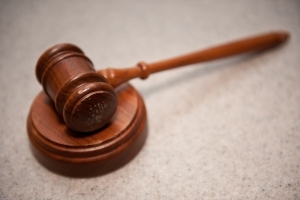In a case in which a traffic death is alleged to have been caused by a drunk driver, it’s imperative for the accused to secure an experienced attorney dedicated to relevant challenges at every phase in the process. One of the most important phases is voir dire, in which lawyers are given the opportunity to delve more deeply into each jury panel member’s history, to gain a better understanding of individual background as well as possible group dynamics.

Fort Lauderdale DUI defense lawyers recognize that when formulating a defense strategy to maximize the potential for success in the courtroom, effective voir dire is critical. We seek to show the jury that the accused is a multi-dimensional person, and we want to make sure each juror is open to that, as well as the concept that the accused is innocent unless proven guilty by the facts.
This is true regardless of the crime alleged, though it’s especially important when the accused is facing the possibility of decades behind bars. And it’s always a responsibility we take very seriously.
Thankfully, as the recent case of Villalobos v. State reveals, the Florida courts, too, hold the integrity of the process in the highest regard.
Here, this was a case where the defendant was accused of two counts of DUI manslaughter after a crash in Monroe County. Florida Statute 316.193 hold that DUI manslaughter is a second-degree felony, punishable by up to 15 years in prison.
The case proceeded to trial. During the voir dire process, the court offered a list of potential witnesses, and asked each potential jury member whether they knew of or had any prior business or social relationships with anyone on that list.
One person on that list was a blood analyst, a key witness for the state. No one responded in the affirmative when asked whether anyone knew her. Later, it was revealed two of those jurors did in fact know this key witness, though in different capacities.
The trial proceeded, with a trooper testifying the defendant was drunk and crossed the center median line, striking another vehicle and killing both that other driver and a passenger. The trooper testified he accompanied the accused to the hospital, where the blood analyst conducted a blood draw.
During a break in the trooper’s testimony, one of the jurors revealed that he knew the blood analyst, as he and his wife socialized with her and her husband on various occasions. Just a few days prior to trial, in fact, his wife had contacted the witness to ask if she and her husband wanted to have dinner soon. Although he indicated he would still be able to act impartially, the trial court granted the defense motion to dismiss the juror and bring in an alternate.
The trial resumed. However, when the trooper was finished with his testimony, another juror revealed to the court that he had worked for the blood analyst as a carpenter and handyman in her home over the last several years. He indicated he saw her every few months, and the last time he conducted work in her home was two months prior. He indicated the analyst wrote checks to him directly, and that he occasionally saw her at the local grocery store, the last time being just two weeks before trial. He said he had given her a hug the last time he saw her because he knew she was undergoing treatments for cancer.
He maintained he could remain impartial. Over the defense’s objection, the court declined to dismiss the juror, finding the relationship in that instance was inherently different (business) as compared to the other juror (social). The court did not indicate whether the defense might have used a peremptory challenge to strike the handyman as a juror once the business relationship became common knowledge.
The trial continued. At the conclusion, the defense renewed its objection to the juror in question and requested a mistrial, which the court denied.
The defendant was convicted and sentenced to 30 years in prison.
The defendant appealed. Florida’s Third District Court of Appeal found the trial court had applied the incorrect standard in determining whether the juror should have been dismissed. The court should have applied a standard for juror nondisclosure, set in the 1995 case of De La Rosa v. Zequeira. This ruling held a new trial should be granted if a juror’s non-disclosure of fact involves information relevant and material to juror service, if the information was concealed by the juror during questioning and that failure to reveal that information was not the result of the complaining side’s lack of due diligence.
The appellate court determined the lack of disclosure served to prevent the defense counsel from making an informed decision – specifically, whether to use a peremptory challenge to strike the juror from service prior to the trial.
Call Fort Lauderdale Criminal Defense Attorney Richard Ansara at (954) 761-4011. Serving Broward, Miami-Dade and Palm Beach counties.
Additional Resources:
Villalobos v. State, July 23, 2014, Florida’s Third District Court of Appeal
More Blog Entries:
State v. Teamer – Vehicle Color Discrepancy Not Grounds for Traffic Stop, July 16, 2014, Fort Lauderdale DUI Defense Lawyer Blog
 Fort Lauderdale Criminal Attorney Blog
Fort Lauderdale Criminal Attorney Blog


